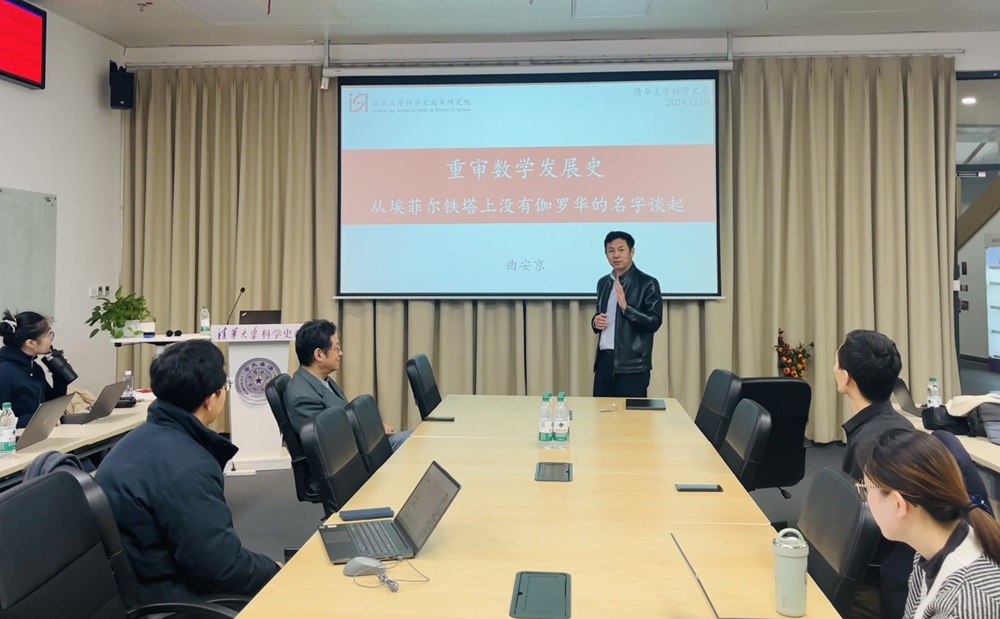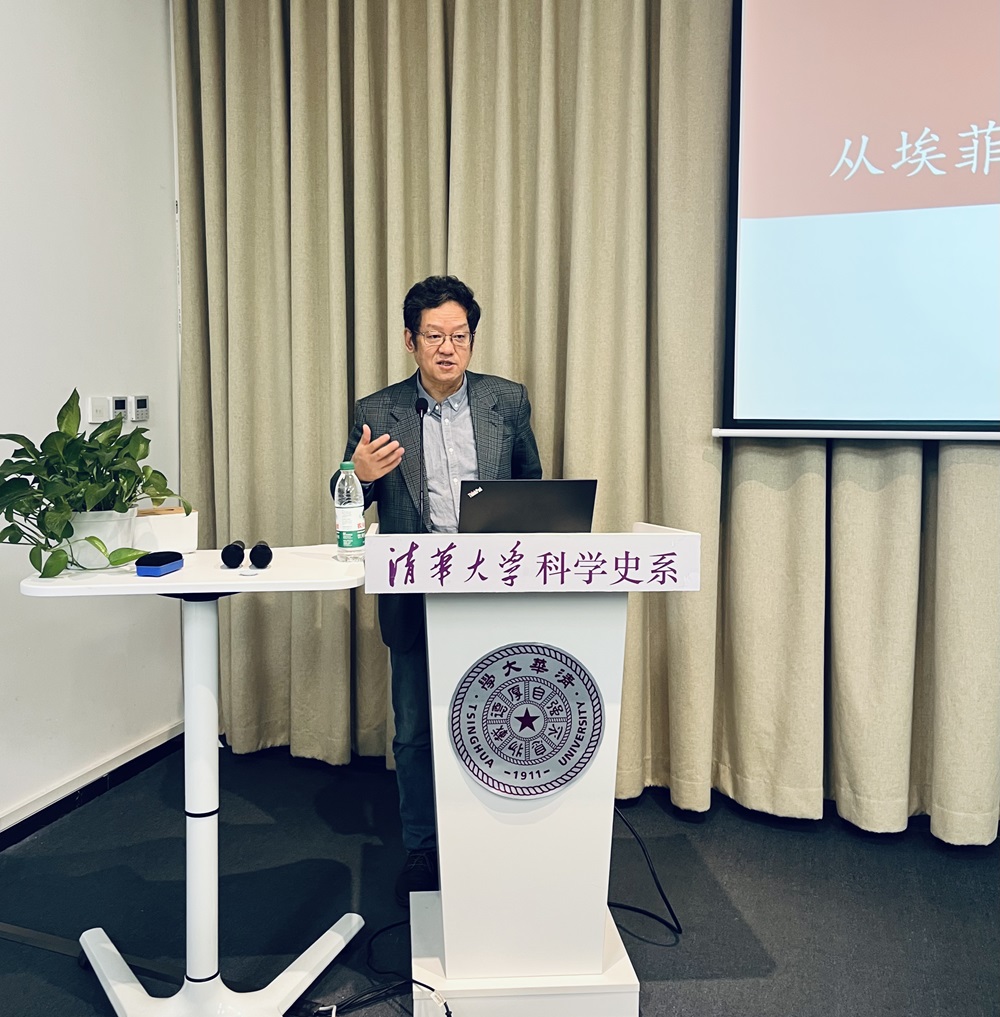On December 9, 2024, THU History and Philosophy of Science Lecture Series No. 84 was held as scheduled in Room B206 of the Humanities Building. This lecture was hosted by Professor Wu Guosheng from the Department of History of Science, and the speaker was Professor Qu Anjing, Dean of the Advanced Research Institute for the History of Science at Northwest University, titled "Re-examining the History of Mathematics Development—Starting from the Absence of Galois's Name on the Eiffel Tower".


As the title indicates, Professor Qu started with an interesting anecdote, introducing a very important academic question: the possibility and necessity of research on modern and contemporary history of mathematics. Professor Qu noted that the Eiffel Tower, built to commemorate the centenary of the French Revolution, does not bear the name of the mathematician Galois (Évariste Galois, 1811---1832); this fact suggests that the high esteem we hold for Galois today might not have been the case in the 19th century, meaning that a mathematician may not have had the influence in his own time that he later achieved.
To understand this difference, Professor Qu introduced the distinction made by Professor Wu Guosheng between two knowledge models: "for truth" and "for power". "For truth," typified by mathematical knowledge from the Greek period, and "for power," which is more like the knowledge accumulation method of ancient China. In the field of modern mathematics, this distinction can be concretized in the two paths of algebraic equations: one is Galois's Group Theory, the other is Abel's Field Theory. Galois focused on the existential form of algebraic equations; whether they are solvable is implicit in the judgment theorem of the Galois group. Although indirect in solving, it establishes an ingenious transformation for mathematicians. In contrast, Abel's path is more direct, constructing whether the equation has a solution itself. Thus, the former is knowledge "for truth," the latter is knowledge "for power." Another piece of evidence is the proof of non-Euclidean geometry; Gauss (Johann Carl Friedrich Gauss, 1777---1855) and Bolyai (János Bolyai, 1802---1860), representatives of "for truth," failed to publish their respective discoveries. However, Lobachevsky (Nikolai Ivanovich Lobachevsky, 1792---1856), in order to solve the law of composition of forces on Laplace's surface space, was able to become the spokesperson for non-Euclidean geometry; this is a representative of "for power."
Then, Professor Qu concluded that research based on practical applications, such as algebraic geometry, and based on mechanistic philosophy, such as prime number theory, shows that the development of mathematics in the 19th century was predominantly "for power." Within this mainstream, the establishment of Berlin's Humboldt University, with knowledge research as its primary pursuit, conversely promoted a kind of "for truth" mathematical knowledge. Professor Qu placed the ebb and flow of these two knowledge types within a longer historical context, believing that mathematics "for truth" focuses on existence, being pure mathematics, while mathematics "for power" focuses on constructiveness, being applied mathematics. This distinction simultaneously responds to Mr. Wu Wenjun's (1919---2017) division of mathematical knowledge types between the Greek axiomatic-deductive system tradition and the Chinese procedural-algorithmic system. At the end of the lecture, Professor Qu looked ahead to the future of "for truth" pure mathematics and historical research in mathematics under the background of the era of large language model development.
After the main content concluded, professors Wu Guosheng, Jiang Che, Liu Niankai, Liu Xiao, and graduate students within the department raised discussion questions around themes such as figures and theories in 19th-century history of mathematics, and the development of historiography of mathematics. Professor Qu responded one by one and, combining with current realities, from a commanding height, brought many inspirations and new ideas to everyone.
Written by: Liao Yuqing
Reviewed by: Jiang Che

